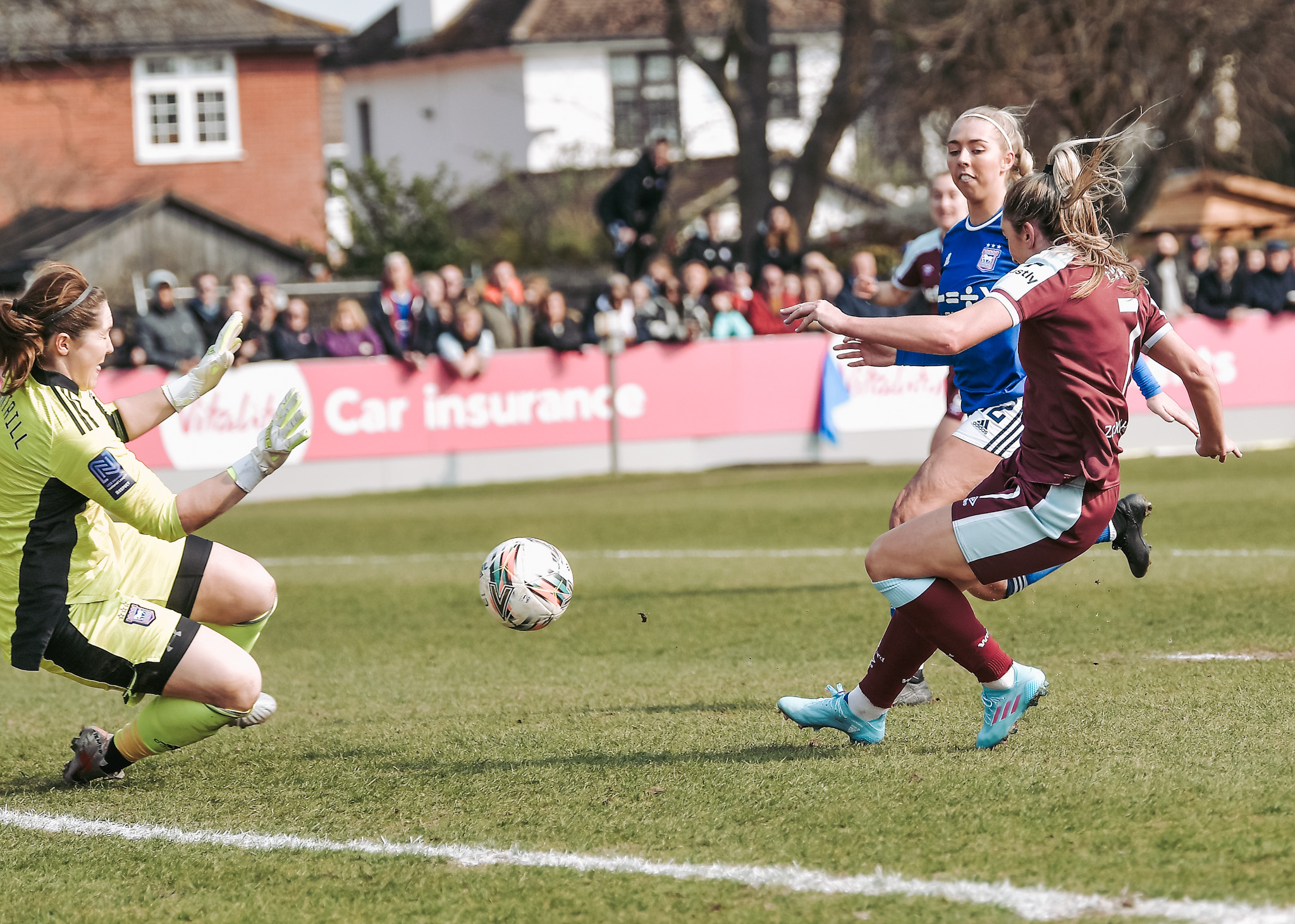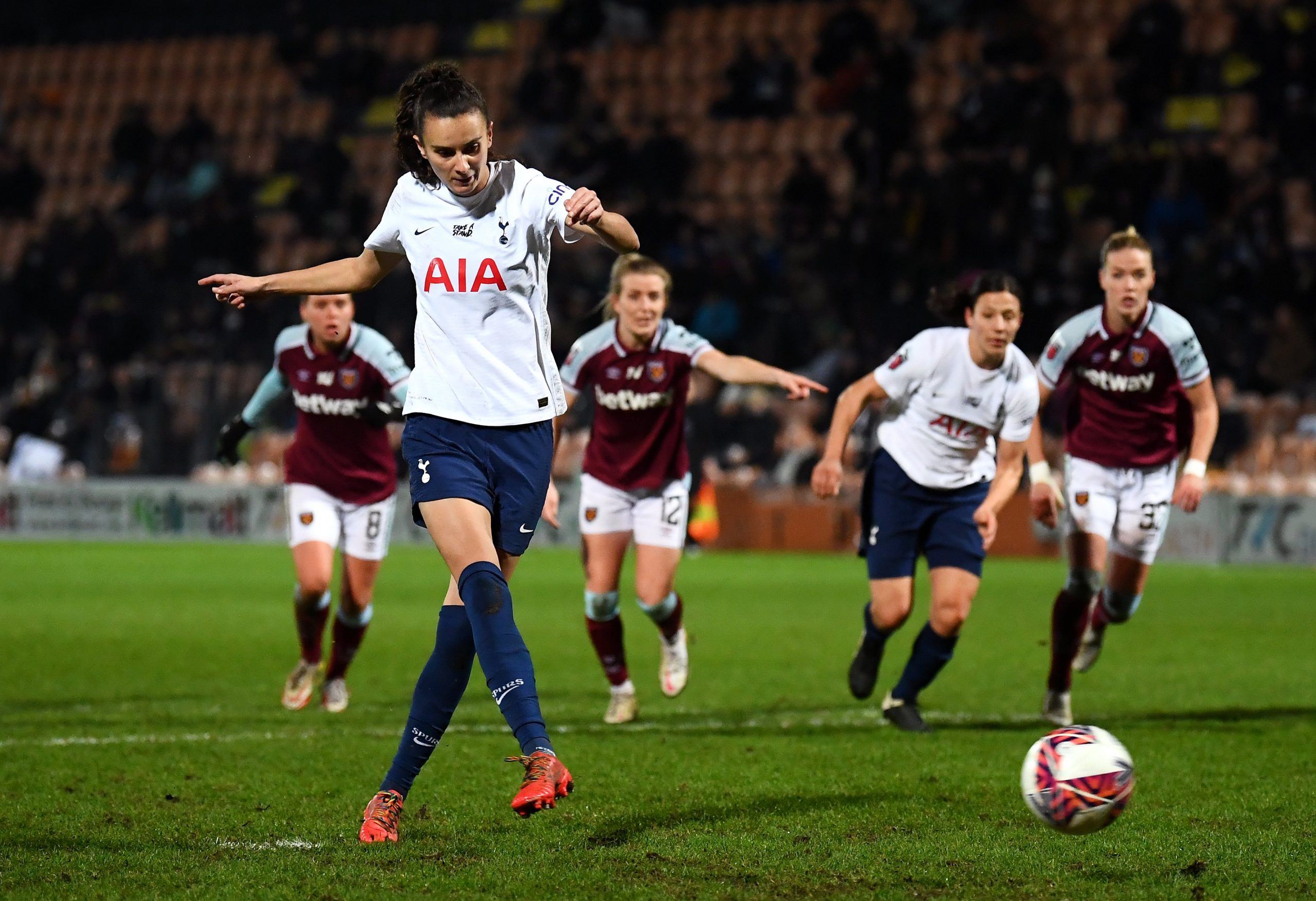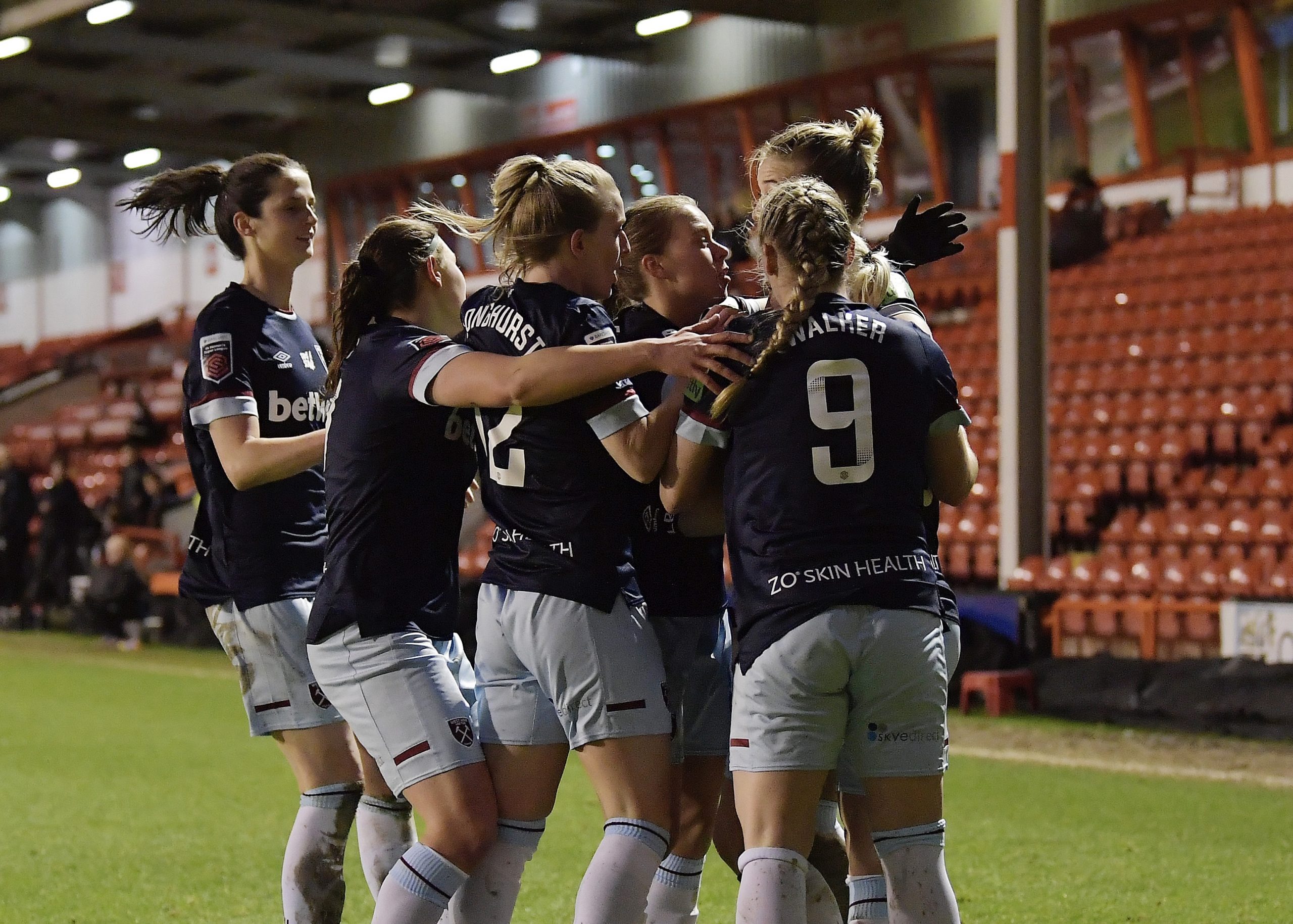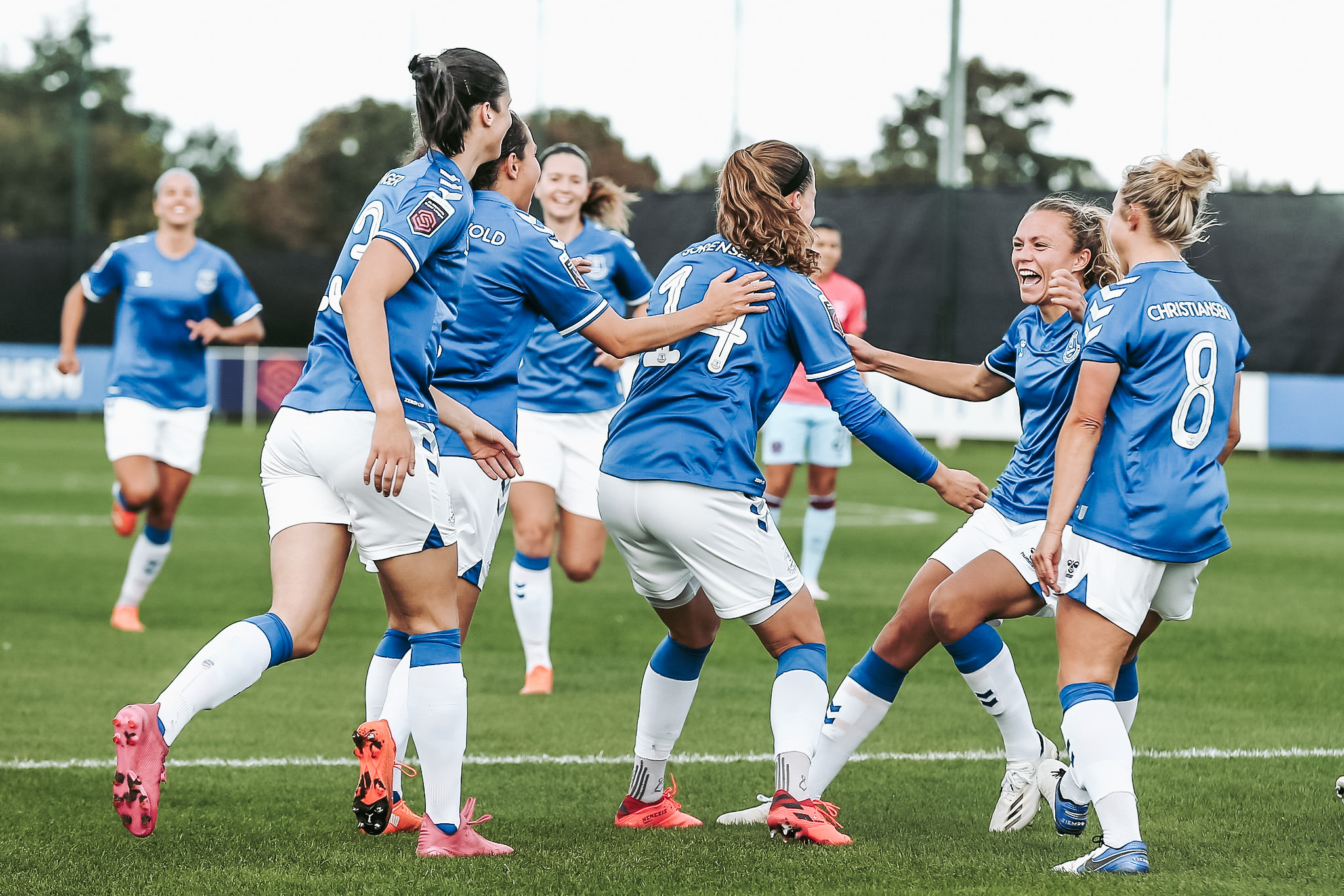Back in April I wrote something for Since 71 about Leicester City’s match against Sheffield United, which took place on 31 March – I hadn’t necessarily planned to write anything else because I wasn’t sure I could add anything to my previous opinion that people would hopefully make the investment of time and money to go to support the Women’s Championship. I gave my view that people’s time would be well rewarded if they did go to support, for an entrance fee (£5) which was very reasonable.
The main reason for writing another article is to repeat my opinion that people should still go, even if the entrance fees rise (within reason). For Leicester’s home match against London Bees on 15 September, I turned up to find that the entrance fee had risen to £7, and I have to say it made me pause for a second. This, after all, is semi-professional sport: the athletes (unfortunately) are not full-time professionals. I was ultimately very glad that I paid the ‘extra’, and ever since I’ve been trying to find time to write out my renewed opinion via Since71, that the match which unfolded, in terms of the football display (3-3 as it turned out) was not only worth £7 but would have been worth even more than that. To say this could take me into difficult territory, because anyone reading could now legitimately ask, “So how much then? How much would you pay?” I don’t want to put a figure on that right now, for fear that if I did, people wouldn’t read past this point. Numbers can have an unpredictable effect on people’s willingness to bear with an argument or an explanation-of-opinion.
For four years (2012-16) I ran a Facebook page urging people to go and see the WSL and what was then WSL2. I remember writing in several places on that page that nobody is daring the FA or the clubs to raise the price of women’s football (or any football) any higher than is necessary. However, I hope the public will (if possible) still support the FA Women’s Championship if entrance fees rise a certain amount, because the football they can see will still reward their time and money. This Leicester-Bees match ended 3-3, and I thought it had everything you could want from football: goals, trials of strength, stand-out individual performances and team cohesion, and this is not the full list. This would not necessarily be so remarkable if the players were full-time athletes, in the same way the men are in their Championship. Manchester United were full-time in 2018-19, and you could see the difference this made to their overall campaign as they won promotion to the WSL by 9 points, losing only once.
This match had more or less everything: six goals; both sides creating chances so the score could have ended 5-5; people crashing shots against the posts; some fine saves by both GKs including one at point-blank range by Leicester’s Scarlett Field; some fierce tackling (within the rules) and other hallmarks of proper physical strength and commitment; genuine pace on the ball and off it.
If I could pick out a couple of players who I thought were worth the entrance fee and other expenses on their own, they would be Lauren Pickett for Bees and Lachante Paul for Leicester. With both of them, we have to remember they are not necessarily full-time footballers, or at least not in the same way as they would be at WSL clubs. I initially thought that Lauren Pickett looked a bit isolated up front for the first half-hour of the match (although I don’t have a UEFA Pro Licence so I never second-guess the way managers set up their teams). After about 30 minutes, there was an injury stoppage of some kind, so Lauren made her way over to the Bees bench for a drink and to speak to the coaching staff. Whatever they said to her, she responded impressively. As I remember, she equalised for Bees just before half-time, or recovered a goal to make the score 1-2. Either way, her calmly-taken goal rescued some initiative and momentum for Bees, and as I remember they went ahead in the second half, forcing Leicester to chase the match. (Which is exactly what Leicester then did, to their credit.) Through Since 71, I wanted to give my opinion that Lauren Pickett is exactly the type of player who would benefit from FT professional status. During this match, she created certain moments which reminded me of Kelly Smith, no less. It is phenomenal how quickly Lauren can turn and run with the ball, even as a semi-professional player. Her finishing is calm and creative, and she seems to listen very carefully to all advice given by the coaching staff. If she could be full-time, I think she would create an even greater number of exceptional moments in matches where people could recall Kelly’s career and other past masters’.
In terms of Lachante Paul, I think Leicester have found a player here whose pace and dynamic movements will create situations which give people welcome flashbacks of Ian Wright. Watching Lashante in this match, I was reminded of the times I was fortunate enough to see Ian Wright play for Arsenal at Highbury, in the 1993-94 season. [I do not suggest she is exactly the same as him, as of course the Laws of Nature would never allow for this.] As with Ian Wright in that Arsenal team, she cannot work alone, and I thought Annabel Blanchard and Aimee Everett also stood out for Leicester in this match. Many players in the FAWC probably fall into the same category as a good wicketkeeper in cricket: so well trained, you almost don’t notice them. On that basis, picking out individuals is never easy. Nevertheless, I would urge people to go and see Lashante Paul, in terms of her close control, pace and willingness to drive at the goal from close in, or far out. Leicester’s dedicated Twitter feed posted footage of her scoring from outside the box against Lewes FC on Sunday 13 October 2019, which also reminded me of Ian Wright in terms of scoring different kinds of goals. Sometimes, the ball is played up to Lashante, and you think a player can’t possibly control it given the situation, but she does, making sure her first touch takes her away from her opponents, and then she’s either looking to shoot or pass to colleagues in a better position. In terms of a foot-race, she is rapid and I hope people will go to see this for themselves.
For Bees, I thought Bonnie Horwood worked tirelessly and Megan Alexander was full of energy and endeavour up and down the left for them, for the whole match. Nikita Whinnett stands out for her will to win, which literally burns itself onto your perception of the match and surely into the consciousness of those around her. In goal, Sarah Quantrill has a knack of stopping shots at crucial moments of the match, and this has to give confidence to the players in front of her.
Today (20 October 2019), I returned to Quorn FC to see Leicester take on full-time professional WSL1 side Birmingham City, an inherently difficult task for part-time players. I cannot write a whole nother report for that match, but the same players mentioned here, again stood out for me. I would say that Georgia Popple was outstanding in defence, still exhorting her team to keep going at 0-4 down. These young people are some of the best we have in our country, so we need to invest in them and put the right structures in place for their personal and professional progress. Clearly, a multimillionaire willing to invest in women’s football could make a big difference here, but ordinary working people can too, by turning up to matches. President Obama repeatedly urged people to be the change they want to see in society, as did many people who went before him and worked with him. In times with much fakery around, I think there is so much that is real and genuine in women’s football, including values that have stood the test of time. I hope people will support this as often as they can.









